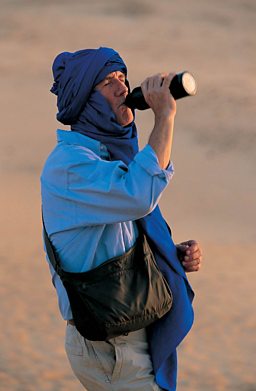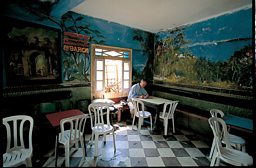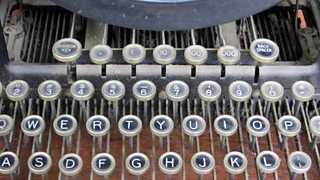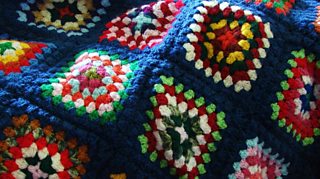Michael Palin: "There's no such thing as an ordinary life"
For some it is their most private possession, so how would you feel about revealing the most personal and important entry from your diary? That’s the idea behind LoveMyDiary, a new project to uncover the hidden lives of living diarists and their innermost thoughts and writings, which then go on public display. It’s a collaboration between artist Derek Eland, King’s College London and the Great Diary Project which aims to collect as many diaries as possible for long-term preservation.
But if you haven’t started a diary yet, we are here to help. Get Creative caught up with the Great Diary Project patron and committed diarist Michael Palin to find out how he started documenting his life, from the birth of his children to the death of loved ones and everything in between.

To call him a comedian does not do justice to the fact that he is a founding member of arguably the most influential comedy team in the world. To say he is a television presenter belies the contribution he has made to reinventing the travel documentary. And to say Michael Palin keeps a diary nowhere near tells the story that the 72-year-old has been writing down his innermost thoughts for almost fifty years – even publishing extracts from those memoirs, turning them into bestsellers and the basis of a one-man show.
Within a month of starting to document his ever-changing life, Palin had entries featuring David Frost, John Cleese and the kernel of an idea for Monty Python. Day one included an account of a lunch with Only Fools and Horses actor Sir David Jason, with whom he starred in Do Not Adjust Your Set alongside fellow Pythons Eric Idle and Terry Jones. But don’t be put off if your entries are likely to feature fewer cultural icons.
“There is no such thing as an ordinary life,” Palin assures us. “Everyone’s life is different, however dull YOU think it might be it’s very different to everyone else’s. It doesn’t really matter if you’re playing at Wimbledon or work in comedy or go to the office, it’s still personal to you and has value to you. That is how you spend your day.”
“Diaries are extremely personal. That’s the true value of them. They’re not records of meetings or appointments but very much your own personal feelings. In my case I decided to publish my diaries 35 years after I started writing them and it came about because someone suggested I write an autobiography and I thought, I’d be using the diaries as a reference why don’t I just publish them.”
And far from revealing a lucky life, his diary exposes an introspective, self-critical side, as he explains in an interview with The Guardian: “Whatever came across as easy often had the most difficult birth. Around the World in 80 Days, for instance. Now seen as a ground-breaking documentary, my diary reveals that it almost broke me. As we sail down the Mediterranean I’m assailed by anxiety as to my lack of qualifications for the job.”
As someone who has opened his diaries to public scrutiny, the comedian says it is an individual decision to let others see what you have written. In his case, his published volumes were only around 25% of what he had documented.
“In a sense you can choose how you want to reveal them but they are perfect records and also a way of sharing with others that were with you at the time,” he told Get Creative.
How to LoveMyDiary
Do you keep – or have you ever kept - a diary? You don’t have to have travelled around the world in 80 days or crossed the Sahara to take part in the LoveMyDiary project: it is looking for thousands of people to contribute their everyday stories to an extraordinary ‘self-portrait’ of today’s diarists. The stories will come together to form an exhibition in 2017, the biggest portrait of living diarists ever attempted.
LoveMyDiary is aiming to uncover the hidden lives of living diarists and their innermost thoughts and feelings, believing that the diary is unique in offering a wealth of information about daily life and all of its up and downs - even the bits that don’t seem that exciting at the time of writing. The project is working in collaboration with the artist Derek Eland, King's College London and The Great Diary Project, which aims to collect as many diaries as possible, from any time period, for long-term preservation. So far it has accumulated more than 2,000 diaries – all of which will be preserved, catalogued and made available to anyone interested in reading them.
How to get involved
If you want to contribute to LoveMyDiary’s portrait of living diarists, you can fill out a blank postcard and include:
• Why you keep a diary and when and where you write it
• The most personal or important entry from your diaries
• A photograph of yourself in your own diary writing space
• Whether you would like to be a diarist in focus as part of our gallery of featured diarists
You can choose to keep your handwritten stories anonymous by not including your photograph or any personal details. Send to LoveMyDiary, PO Box 407, CARLISLE, CA1 9GJ or alternatively send by email to LoveMyDiary@yahoo.com.

His family, including his children and wife with whom the veteran comedian has been married for almost 50 years, had not seen what he had written in his diaries before the decision was made to publish them.
The most important thing in a diary is to be yourself.Michael Palin
He said: “Keeping a diary is so important from a family point of view. Especially for children. In time it can help them understand parents and your relationship.”
Family is clearly paramount to Palin, pointing to the birth of two of his three children as key moments in his diary writing.
“I wrote about getting up in the middle of the night and the length of the births, so for me the most important entries are the emergence of two of my three children,” he said. Other poignant entries are around the deaths of his mother and Graham Chapman, as Palin was at the hospital when his fellow Python lost his battle with cancer at the age of 48.
“The type of detail you share with your diary is not the kind of thing you would put in a letter. It’s my report of how I felt that day."
"People who have psychotherapy always talk about the value of keeping lists and a record as a valuable thing to do. It can reveal our state of mind.”
Palin said keeping a diary can also help you be more aware of others. He said: “I kept a diary because I was interested in observing what was around me. I’ve always been the same, even at school. Instead of listening in the classroom about algebra I was more interested in what was happening outside the window: what the weather was like, what was happening in the building opposite. I always had a deep curiosity in people, what they were doing and how they looked – I think that’s why I initially went into comedy.
He says the challenge of diary writing quickly becomes a ritual. And while his varied career features prominently, it is clear he relishes being able to document his home life.
“When I look back at my first diaries it was at the time of starting Monty Python. But there are also key moments outside of work, like enjoying watching my son learning to walk. Keeping a diary allows you to look back and remember those moments.”
“That’s why it’s a good idea to get into the habit of writing a diary to record every 24 hours,” he said. As patron of The Great Diary Project, he has been struck by people’s different approaches to keeping a journal. While he uses a single notebook others he saw were illustrated or in the form of a scrapbook.
And the most valuable piece of advice Palin can give to fellow diarists? For someone who has described himself as 'a silly man' it is a sensible recommendation: “The most important thing in a diary is to be yourself.”
Related links
Michael Palin's Quest for Artemisia


In 2016 I'll get creative by...
-
![]()
...writing
Top tips for putting pen to paper or fingers to keyboard
-
![]()
...crocheting
Get hooked on crochet with this handy guide
-
![]()
...learning guitar
Get on the path from guitar zero to guitar hero
-
![]()
...photography
Tips to help you put the new year into focus





